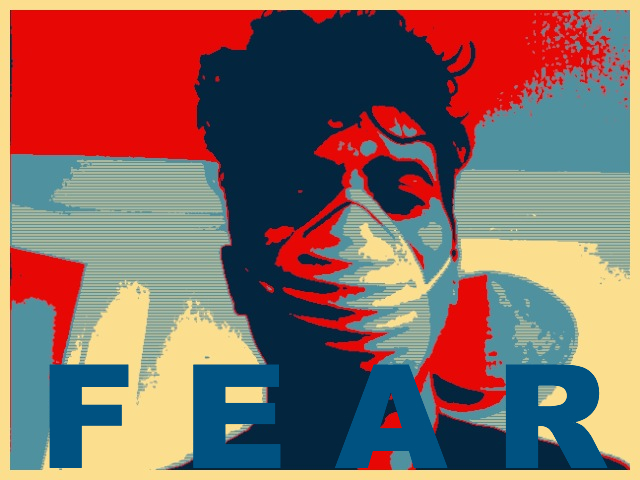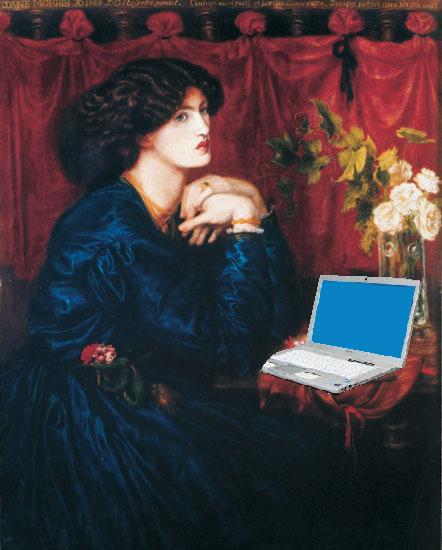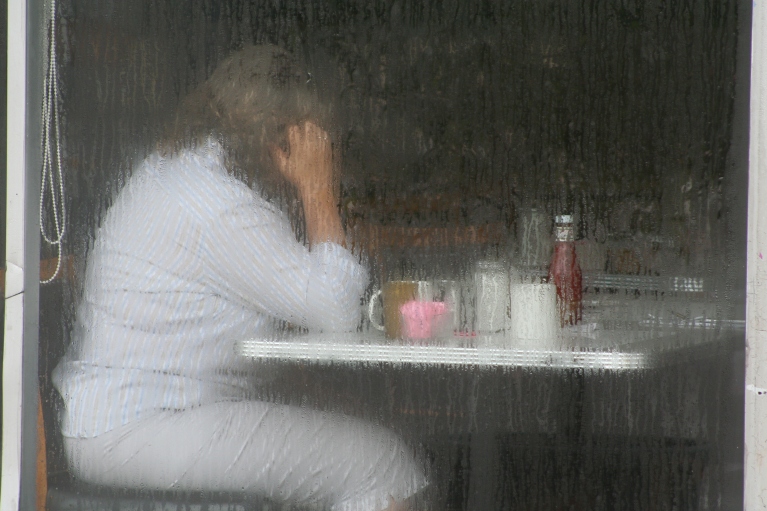21 Questions is a series of interviews with people who currently have an eating disorder or have recovered from one. The same 21 questions are asked of each person. Each interview sketches a picture of someone who has been in the depths of the reality of an eating disorder and is either still working on blazing a path out of it or has gone on to recover. Some of the names used have been changed at the request of the interviewee. If you would like to be interviewed for this series, please contact us.
Interview with Cassie:
Q: How old are you?
A: I am 28 years young.
.
Q: Male or female?
A: Female
.
Q: How long have you had/did you have an eating disorder?
A: Officially diagnosed and on record? Since April 2013. Informal off-record treatment? Freshman year of college, Fall 2004-Spring 2005. After in-depth assessment with my current therapist? All my life. I have been displaying signs, symptoms, fears, compulsions and obsessions since I was 2. Life-threatening cases were when I was 18 and again in 2013 (multi-organ failure).
.
Q: Which one do/did you have, or has it been more than one (anorexia, bulimia, binge eating disorder, EDNOS, compulsive exercising)?
A: Initial diagnosis was anorexia/bulimia with hypergymnasia. They really were not sure what to put as my diagnosis or how to approach me. As of April 2013, I am EDNOS. I meet all the criterion for anorexia except for the weight.
.
Q: Who in your life knows about your eating disorder?
A: “Knows” is such a relative term. I have told my parents, two of my sisters, my brother, my closest friends, my aunt and cousin, a family friend and some of the men I dated. My parents and sister seem to deny it and think I am making it up. Some of my closest friends, one of my sisters, and my brother all bounced when I told them. Some of it was denial, some of it I’m not sure. I want to tell the world that I struggle with it, but there is SO much judgment involved in stereotyping that I am not able to. I fear telling the men I date because no one understands eating disorders – just the stereotypes.
.
Q: What person in your life was the most helpful and supportive during both sickness and recovery?
A: In the beginning of this recovery session, two of my best friends.They were the ones who were on to me not doing well and were really concerned. They pushed and pushed me to get help. They were great the first six months. Then one had a baby and fell off. Another two close friends are helpful but do not really talk to me about it. I think the most supportive in all of this has been my therapist and my group therapist. They are the only two consistent people who understand when I struggle, and are helpful. They also refuse to give up on me.
.
Q: What person that you might have wanted or expected more from was the least helpful and supportive?
A: Not sure. My parents but yet I honestly did not expect it. They are still convinced I “flunked out of college” instead of being told by my therapist I needed to return home to a more supportive environment. Also, my best friends. I thought they would have been consistent but they were not. I know I am a burden, but just acting like I fell off the earth really added to the worthless and hopeless feelings I had.
.
Q: Do you or have you ever sought professional help, such as a therapist, psychiatrist, nutritionist, doctor, support group or inpatient treatment? Specify which kind of help you had.
A: I had a nutritionist in college. I [initially] withheld my struggle with anorexia from my doctors. I had a full blown panic attack in the doctors’ offices, and was in the midst of multi-organ failure. I realized I had a problem. They also threatened [me with] a 5150. From there, I had an intake appointment with a therapist. I met with a psychiatrist and started medication therapy mainly for control of the anxiety. My group therapist is specialized in eating disorders. I have therapy three days a week. I am still in intensive PHP. I outright refused a nutritionist and inpatient treatment unless they committed me. Even then, I probably would still refuse, hahaha.
.
Q: What was most helpful to you about the help you got?
A: For once in my life, I was validated. Someone listened to me and my problems. Someone actually cared and was concerned. She did not give up on me when I had given up on myself. She empowered me.
.
Q: What issue(s) do you feel affected or influenced developing an eating disorder?
A: Invalidating environment, fear of judgment, increased moments of anxiety, loss of control, having braces for thirteen years (encouraging me to limit my dietary intake), and people just not caring. I was a competitive dancer, but I am not sure if that really contributed as much as people stereotype. Going to a high school that was predominantly Asian, while I was Caucasian with an hour glass body. I was told I was fat by the boys all the time. There was also a lot of death in my life. Being Jewish, I also loved the holidays where we were starving ourselves.
My doctors all missed it. I stopped getting my period and [my doctor] told me to lose more weight. They instilled the fear of diabetes and being fat in me. My doctors exacerbated my eating disorder.
.
Q: Besides yourself, who in your life do you think is/was most affected by how your eating disorder hurt you?
A: No one. My parents claimed they were embarrassed by my eating habits and would mock me in front of others. But I have always made it my problem. I internalized it. I would only eat in front of others and then starve on my own so no one saw how they hurt me. Maybe my therapist? I know she struggled a lot in the beginning and sometimes I feel like I let her down because I am not recovered yet. I always fear letting her down the most. She has put so much into me. That is why I did not kill myself a few months ago. I felt like I would destroy her and she would resent me.
.
Q: What was the first major breakthrough you had in recovery?
A: Maybe six months ago when I was stronger and able to eat new foods I had avoided for years and never eaten. Again when I realized that I grew up in an invalidating environment and have a toxic job with a lack of appreciation. That my family has caused my fear of judgment. That was huge. It made me realize it was not my fault and you cannot change everyone. Being able to feel when I was relapsing. That was huge.
.
Q: What is/was the hardest truth to accept about what you have to do in order to recover?
A: I have to eat. That is the ultimate hardest truth I face. I like not eating. And it would make sense that overweight people should cut calories to lose weight. For me, it is increase calories and to eat for weight loss to come about. That was and is still the hardest thing I have to constantly face. It is so easy to skip meals.
.
Q: If you could be eating disorder-free for a day, what things would you do?/If you are recovered, what things do you do now that were very difficult when you were still sick?
A: I am not sure. This is a very difficult question. Part of me thinks go to a restaurant and not care. But I also do not want to go and eat. I also would want to go out in public and just not care what people think of me. Be free from the fears of my weight and the judgment. Not worry that men think I am too fat to be loved.
.
Q: What one piece of advice would you give to someone new to admitting they have an eating disorder?
A: It is never easy. Ever. I am an example of what is and will be a life-long struggle, but not everyone has it as a life-long struggle. I envy those who can be fully recovered. You have to do it for yourself because no one else truly cares. They move on. They get bored. Hold on to whatever it is that makes you want to live and go for it. Mine was to help others.
.
Q: What one suggestion would you give to a loved one trying to support someone with an eating disorder?
A: Do not give up on them. Believe them in their feelings. Validate their feelings. If you cannot understand, do not give up; just accept it. Keep supporting. It really sucks going at this alone. It makes the hopelessness and worthlessness stronger. It makes the point of living much more bearable if someone supports you.
.
Q: Do/did you seek support online? If so, what kind of support and did it help you?
A: I created my own blog. I tried to stick with it regularly, but I gave up when I did not receive the followers I thought I would receive. I also used to obsessively research online information in high school. I found journal entries about it. Pinterest was also huge for my support. It allowed me to pin my deep, dark, gruesome thoughts and struggles. Some of the pro-ana stuff was detrimental in the beginning. It gave me strength. Now it gives me strength to not go back, at least to hold out and try.
.
Q: If you are sure you will not go back to your eating disorder, what gives you that confidence?/If you are scared you will relapse, what is your biggest trigger?
A: Oh, I straight up told my therapist I do not expect to live past 35 years of age. I am pretty sure I will be the statistic of death by anorexia. I am constantly relapsing and I’m not sure if it is a fear of doing so. The fear is being free of the eating disorder and being in this world without that single comfort.
My triggers? Men telling me I am not worthy of being loved because where I live, even uglies think they are entitled to skinny, fake tan, fake blonde bitches. I am none of those. I always feel like I am not good enough. I am the perfect nurse and unable to obtain a job because it is so competitive. Some [interviewers] told me that while I would be the perfect nurse, I am “too fat” to be a nurse.
.
Q: If you have children or plan to in the future, are you concerned about how your eating disorder may affect them? If you recovered before you had kids, do you think your experience with the eating disorder will help you to better guide your child away from developing one?
A: I have always wanted to have children, but I have also known since I was in middle school I was never going to be pregnant. I am too fearful of being fat. Fearful of the fear that will cause me to starve and then starve my baby so it comes out destroyed. Fear of never losing that weight. Fear of being able to get the nutrition in that the baby needs. I am so fearful of being fat that I would throw myself down a flight of stairs to abort a baby. Ya, that bad.
.
Q: Did you read books or workbooks to help with your recovery? If so, are there any specific ones you recommend?
A: My therapist offered two that helped me help my loved ones. I recommend them. I cried a lot reading them because it gave me insight as well. “Help Your Teenager Beat an Eating Disorder” by James Lock. “The Eating Disorders Sourcebook: A Comprehensive Guide to the Causes, Treatments, and Prevention of Eating Disorders” by Carolyn Costin. “The Anorexia Workbook: How to Accept Yourself, Heal Your Suffering, and Reclaim Your Life” by Michelle Heffner. I think it is a great supplement.
.
Q: What song, album or musical artist comes to mind when you think of good music to listen to while trying to make positive changes in your life?
A: Honestly, EDM (electronic dance music) saved my life. It helped me be able to escape without utilizing substances, hurting myself, having excessive sex, etc. It had the ability to give me the same pleasure I used to get from sex; the orgasm and all. It allowed me to be sad if I needed it. It made me happy. It really encouraged my mood. It truly helped me feel like I escaped myself when I hated being me. It also gave me a community.![]()
Visit Grace on the Moon, a website for eating
disorders information and recovery:
http://www.graceonthemoon.com
Photo at top of blog is from the Flickr account
of Mat Honan










